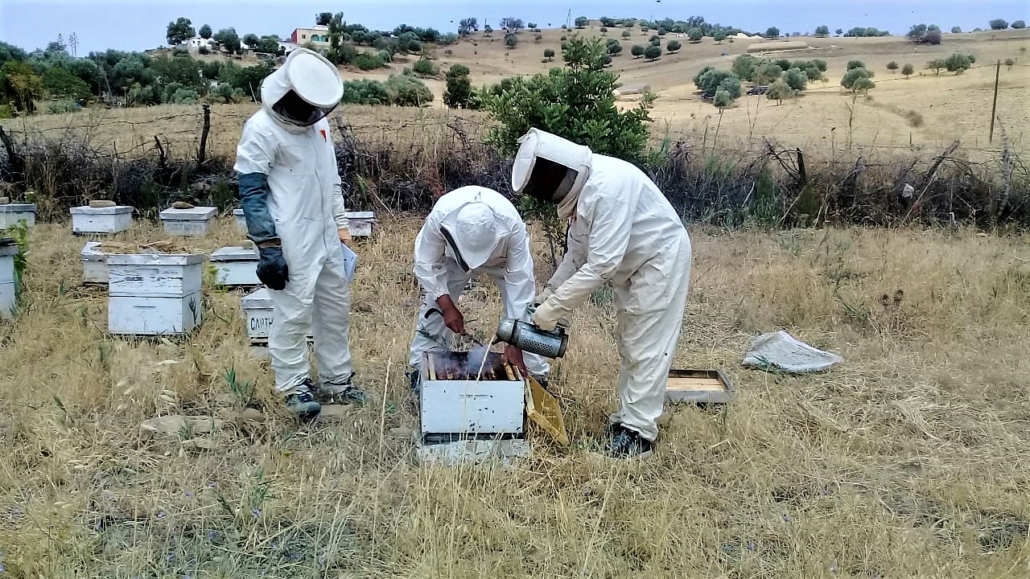To strengthen the technical skills of member beekeepers and enable them to improve their production, the Union Al Amal of Taza Beekeeping Cooperatives (Upat) in Morocco is organizing training sessions in beekeeping with Fert.
Since 2014, Fert supports the Al Amal union of beekeeping cooperatives of Taza – Upat, in the North of Morocco, in the improvement of the production, the valorization and the marketing of honey and other products of the hive.
The weak mastery of beekeeping concepts and techniques by beekeepers restricts the perspectives of improving honey production, in quality and quantity. The union, with the help of Fert, has therefore decided to use an external trainer for the members of 5 grass-roots cooperatives that have recently joined the union. Based on the needs of beekeepers, the training courses focus on the mastery of technical skills in transhumance (periodic migration of apiaries), diagnosis, prevention and treatment of bee diseases, preparation of apiaries for wintering and good sanitary practices in beekeeping.
Al Amal Union
20 member beekeeping cooperatives
400 supported beekeepers
800 people beneficiaries of the action
Training accessible to all members
In order to make these trainings accessible to all members, the vulgarization of beekeeping concepts and techniques was essential. It was facilitated by the choice of the trainer. Also a beekeeper in another region of Morocco, he was able to explain beekeeping techniques in a simple and concrete way.
The training courses were also completed by practical exercises in the apiaries of each cooperative and by the active participation of all the members.
The trainer devoted a whole day to each theme and visited each cooperative to enable all cooperative members to participate in the training sessions.
A beekeeper’s word
“It’s the first time we’ve had this kind of training and we’re very satisfied, usually the training sessions are organized in rooms with all the cooperatives, it doesn’t bring us much”.
A beekeeper’s word
“It’s very important to be trained in our own apiary, it’s an opportunity for us to talk to the trainer. It also allows us to know the situation of our apiary and how we should go about it afterwards.”
These trainings were very much appreciated by the beekeepers. Accessible and pedagogical, they were also an opportunity to strengthen a collective dynamic between members of the same cooperative.
Fert then leads exchanges on the ‘training knowledge’ in order to re-explain the summary sheets produced by the trainer and to consolidate the knowledge. These activities help beekeepers to implement their new skills, such as the implementation of treatment on apiaries. They are also a new opportunity for beekeepers to exchange ideas with each other.
These training courses are recent, but results are already being there. A beekeeper explains as follows: “before the training, we didn’t even recognize the problems in our apiary, now we are able to make a diagnosis, but we still don’t know how to treat them”. The knowledge acquired must therefore be consolidated and put into practice.
Ten other member cooperatives also benefit from training on bee diseases and the transformation of propolis.



